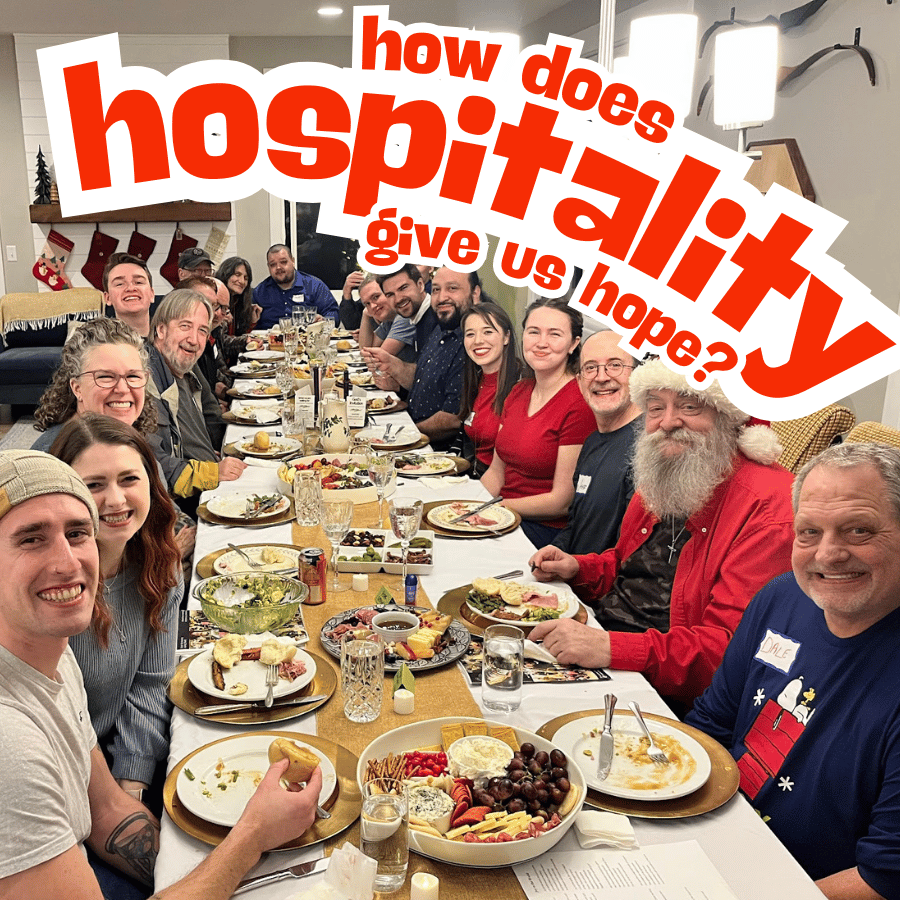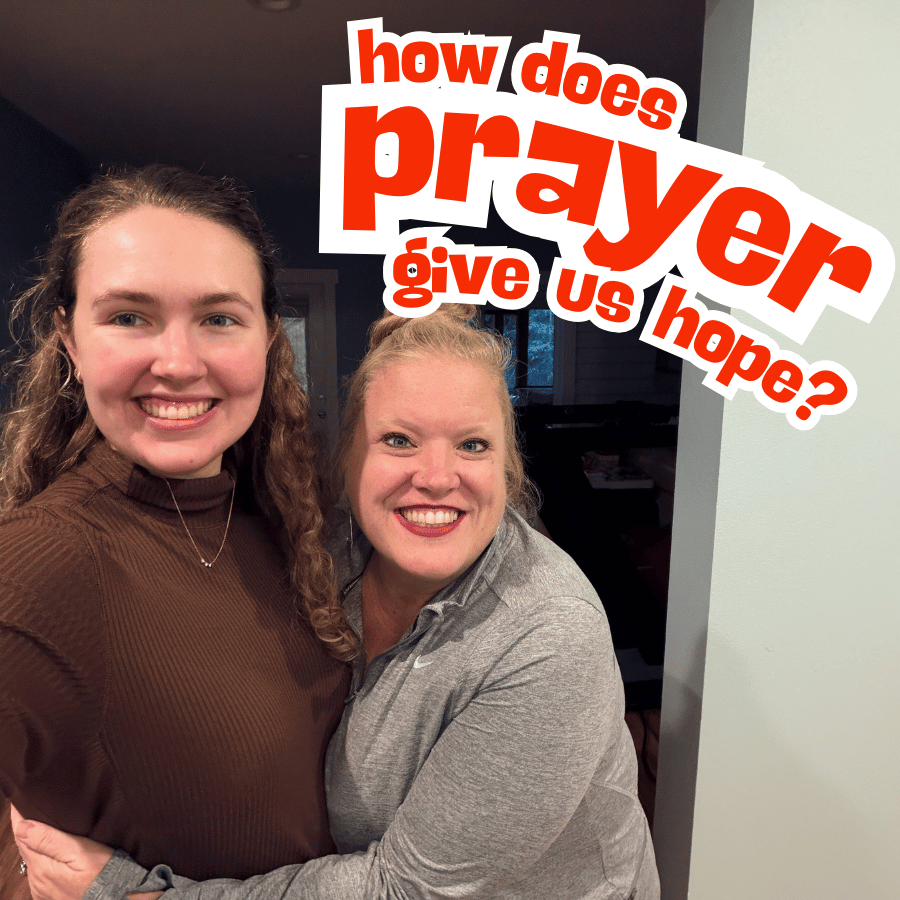You Can’t Change Them
Written by Emma McCoy
4 minute read
I’m about to draw some connections that might make people uncomfortable. But fear not, my devoted reader, this is not the first time I’ve done this and it won’t be the last. Trust you’re in good hands, because in order to walk along the faithful path with others, and become more like Jesus, we have to think about things that we’d rather not. I don’t like thinking about how I’ve hurt someone, but I have to, in order to make that relationship better. I don’t like studying, but I have to if I want to pass. I don’t like allowing the Holy Spirit to transform my life (it’s uncomfortable) but I have to if I want to stay on the faithful path and become more like Jesus.
Let’s talk about uncommon friends.
Specifically, I’m going to talk about how one set of uncommon friends (people in addiction and homelessness) can help us with another set of uncommon friends (political enemies). I want to have a connection with someone experiencing homelessness, because I know that’s part of the faithful path. I know I’m called to give and receive, and to take care of the poor and marginalized. But I, in no circumstances, want to have a connection with my political enemy. They’re the worst!
Unfortunately, I can’t stop there, so how can my journey on the faithful path with my homeless neighbor help me with the political enemy I find repulsive?
If you’re going to draw closer to an addict on the street, there’s some skills, tools, and things you need to know. Depending on your gender and physical size, you might need some physical boundaries, such as your car, a few feet of space at the bus stop, or talking in a public, crowded area. Boundaries are important: you wouldn’t invite a stranger in active addiction into your car or your home. You’d need to be able to find common ground, make eye contact, and listen while recognizing the humanity of the person in front of you. It’s easy to relegate this task of connection to social workers, or the police, or people trained in that sort of thing. But as followers of Jesus, we aren’t trying to change the person in front of us. We can’t free someone from the cycle of addiction. We’re not there to lay down the law or “fix” someone.
That’s not easy. That’s why most people don’t do it.
And yet when Jesus told his followers to be generous, give freely, and make disciples, he wasn’t using a metaphor. Uncommon friendship is just that: uncommon.
Our goal is to recognize the person as a person, to be open to a positive and light interaction, so that the Holy Spirit can speak to us both.
Our goal involves a shared humanity so that you can have a connection, even if the other person’s thoughts are incomprehensible to you (whether it’s from drugs, mental illness, or something else).
Now, talking with an addict on the street is a visceral picture of uncommon friendship. And yet, it doesn’t stop there. We have this impulse to pick the parts of the faithful path that are easier, or make more sense to us, but one of the radical parts of Jesus’ teachings is that it is radical to love your enemy. And it’s precisely the person, or people, who you think are the exception that are most certainly included. We can take the skills from our street interactions (boundaries, empathy, etc) and transfer them to this kind of uncommon friendship: political enemies.
November is fast approaching.
Vitriol in the news, fake stories, true stories, smear campaigns, and people digging trenches so deep it’s hard to see out of them. It’s easy to think “love your enemies” and even easier to think “but that doesn’t include them.” As my dad liked to say when I was growing up, tolerance is only needed for the intolerable.
Again: if we know that we need tools to talk to someone on the street, then we need to acknowledge we need tools to talk to our political enemies. Why is one situation approached with care and the other with carelessness? Both sets of uncommon friends are important, and both consist of people made in the image of God. And Jesus calls us to love BOTH! So how might healthy boundaries, empathy, common humanity, and clear goals help these conversations?
I wish I had all the answers. If I did, I’d be a lot more helpful (and also a lot richer). But until I’m further along in my quest for wisdom, here is what I have to offer:
Don’t try to change your political enemies any more than you’d try to change a homeless person on the street.
You can’t interact with an addict on the street with the goal of ‘saving’ them. You can’t save them from the cycle of addiction. What you can do is have a light interaction where you listen, and affirm their personhood.
In the same way, you can’t approach your political enemy determined to change them. Regardless of whether they want to defund your organization, make a value of yours legal or illegal, or restructure the economy. These are real-world implications, and still Jesus calls us to friendship. Jesus healed the daughter of a military officer who was occupying his homeland. I promise, you can have a conversation with someone who wants to open the border or close it; someone who wants to strengthen the government or shrink it; someone who wants to fund schools or privatize them.
It’s not easy. In fact, it’s difficult, and impossible to do without God. Having a connection with both groups can harm me. Both are alien to me, and don’t come naturally. Both require me to be more humble, patient, and attentive than I wanted to be when I woke up. And dear God, it’s uncomfortable. It’s painful. Both remind me that I’m limited and not in control. I’d like to imagine that I’m receptive to whoever God sends to disciple me, and I respect them and see them, but engaging with my political enemies and my homeless neighbors destroys that fantasy. I’d like #livemybestlife and only be in friendship with people I like, but instead I get “be holy, just as I am holy.”
Crap.
I can’t do this alone, and I’m not supposed to.
Approaching difficult conversations with political enemies with a light and positive goal, recognizing their humanity, and setting up boundaries (like public spaces, length of the conversation, or having others present) can help me walk with others on the faithful path.
Remember, we take the next step, even when the path isn’t easy.
This Sunday, join us for our Common Table Gathering as we start to have these conversations about how uncommon friendship looks in political situations. The rubber is hitting the road, so to speak. Drawing closer to political enemies can feel like something impossible, but engaging tools and skills that seem second-nature in other situations can help us here, too.









3-minute read